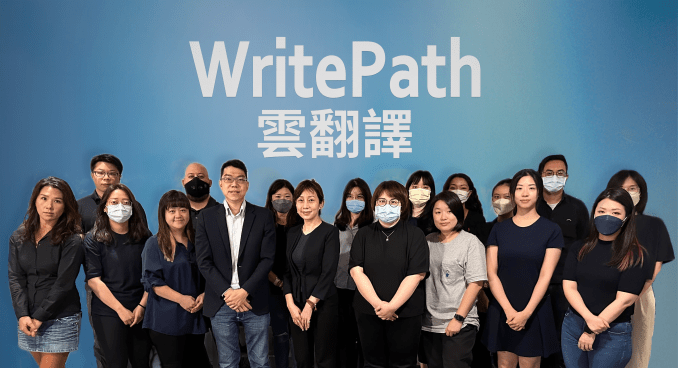In countries where English is not a main language, listed companies not only have to deal with financial disclosure regulations, but make sure their investor materials are available in English for global backers. WritePath make the process faster and scalable by combining its AI tech with human translators. The Taipei-based startup’s clients include Foxconn, ASUS, China Airline, the Taiwan Stock Exchange and Taiwan Mobile.
WritePath announced that it has raised $340,000 in pre-Series A funding, led by Quantum International Corp. CEO Alex Lee. The round also saw participation from angel investors like jobstreet.com founder Mark Chang. WritePath’s previous investors include byUDN.com, a subsidiary of United Daily, one of the largest media organization in Taiwan, and Singaporean translation firm Elite Asia.
TechCrunch first covered WritePath back in 2014 when it was an essay editing service for college applicants, technical writers and academic researchers. Founder and CEO Charles Chen said the company decided to switch focus because essay editing was labor intensive and hard to scale since it had to acquire new clients every year. WritePath originally offered B2C translation services, before its team saw that governments in Asia are implementing more English-language disclosure policies, including for listed companies.
The company’s platform combines tech like Warren, its in-house machine translation engine, with human translators. Warren was trained on a language corpus of several million Chinese-to-English sentences gathered from financial, annual and ESG reports.

WritePath’s team
One of the reason for new disclosure policies is investor activism and the passage of the Markets in Financial Instruments Directive (MiFID II) in the European Union. MiFID II is a legislative framework that calls for more transparency by companies, including regulatory reporting, to protect investors. Its trading rules included requiring brokers to charge funds for research separately from trading fees. Many funds started looking for information from listed companies’ IR and ESG departments, instead of relying on equity research reports.
“As a result, though, small and mid-cap companies may find themselves easily overlooked,” Chen said. “So having their information presented professionally in English helps give them a boost and ensure they don’t fall off the investment radar.” He added that more companies in Asia markets, including Taiwan, China, Korea and Southeast Asian countries, will start publishing disclosures in English as capital markets mature and grow.
Before turning to WritePath, many of its clients used traditional translation agencies or translation services offered by the Big 4 accounting firms to produce English-language reports. Chen said one of WritePath’s advantages is that its technology, including Warren and corpora management system T-Booster, maintains consistency in corporate language and terminology. This means its human translators can focus on the quality of content, reviewing sentences for accuracy.
WritePath also offers a “self-service” solution for material information that needs to be disclosed within 24 hours. This enables clients to order and manage translations through WritePath’s portal. Part of its new funding will be used to upgrade the portal so it can process multiple files and batches that come in at different times, but need to be delivered at once.
Chen said WritePath differentiates from financial printers like Toppan Merrill, R.R. Donnelly and Pronexus by combining human translators with AI tech in its workflow. EQS and MZ are online IR disclosure tools, but require translation help when they publish information in countries that don’t use English as a main language. Another company in the financial disclosure space is Fiscalnote, but it focuses on data, like ESG information, instead of translation.
The funding will used to expand WritePath’s translation services for listed companies and add more verticals, like design and layout for ESG reports.
Taiwanese startup WritePath’s AI tech speeds up financial disclosure translation by Catherine Shu originally published on TechCrunch
via Tech News Flow
No comments:
Post a Comment